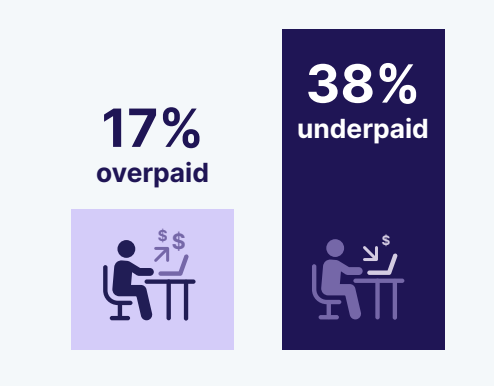

Nearly half of organisations with major operations in Europe are concerned about the impact of the upcoming EU Pay Transparency Directive, according to a new report.
The directive is an ambitious plan by the European Union (EU) to combat pay discrimination and help close the gender pay gap in the EU by implementing new pay transparency rules.
Under the new rules, EU companies will be required to share information on salaries and take action if their gender pay gap exceeds five per cent, according to the European Council.
"The directive also includes provisions on compensation for victims of pay discrimination and penalties, including fines, for employers who break the rules," the council said on its website.
The new rules on pay transparency were adopted in April 2023, with the first pay reporting deadline set in 2027, based on payroll data from 2026.
Ahead of the directive's implementation, Syndio surveyed over 400 professionals and leaders primarily in HR and Total Rewards in companies in North America, Europe, and Asia.
It found that 47% of companies with major operations in Europe are extremely or moderately concerned about the impact of the EU Pay Transparency Directive on their organisations.
"The percentage of leaders who are concerned is quickly growing as they realise the urgency of accelerating their efforts to comply with the Directive," the report stated.
While the first deadline for reporting is set for 2027, the report noted that employers' last chance to make pay adjustments will be in 2025, as the first report will be based on payroll data for 2026.
These concerns come as the report also found that only 12% of employers are "fully prepared" for the upcoming directive.
Another 61% feel somewhat prepared, while 26% said they are "not at all prepared" for it.
"The EU Pay Transparency Directive is the most significant piece of pay equity legislation anywhere in the world in the last 50 years," said Christine Hendrickson, VP of Strategic Initiatives at Syndio, in a statement.
"But I fear there are too many leaders, including some U.S.-based employers with a footprint in the EU, who have not yet digested what a massive change management exercise this will be."
According to the report, among the reasons why employers feel unprepared include:
"These issues lead to both newly hired and tenured employees being paid too little or too much," the report said.

Source: Syndio
As many organisations don't feel as prepared, the report recommended taking steps to build a more proactive, centralised strategy.
"While our research shows that many organisations still have a long way to go, the good news is that wherever they're starting from, there's still time to act and prepare for what's coming – don't get left behind," said Maria Colacurcio, CEO of Syndio, in a statement.
